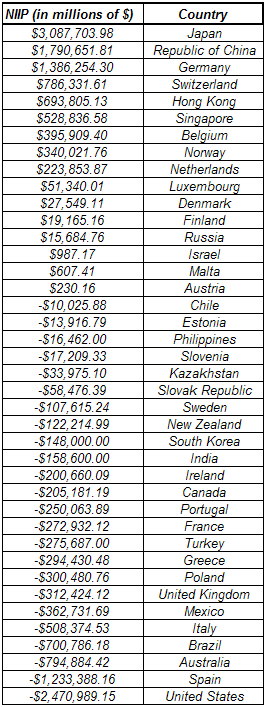You know we’re in trouble. The United States is not just the most indebted nation in the world – it’s the most indebted nation in world history.
I believe our debts will only get worse before they eventually get better. And when they get better, it will be from the sweat of our brows – not by any magic political statements or PhD thesis of a central banker.
In the meantime, you’ll continue to hear excuses and equivocations from the debt apologists – aka Keynesians, or “modern monetary theorists.”
The biggest hook these apologists have to hang their hat on is Japan.
Japan, they’ll note, has a much higher debt-to-GDP ratio than the United States. They’ve also carried this debt load for decades now, with no real ill effects.
So while the United States “only” currently carries a debt load of about 100% of its GDP, Japan sits pretty with a ratio over 200% of GDP.
Apparently that’s good news for the United States as far as the Keynesians believe…instead of being bad news for us and worse news for the Japanese.
But you need to dig a little deeper to really see what kind of trouble the United States is in.
Because it’s not just our debt-to-GDP that tells the whole story.
Note the table to the right. It’s compiled from the International Monetary Fund, and it notes the Net International Investment Position (NIIP) of 40 different countries. The NIIP simply measures the difference between foreign assets that domestic residents own and assets that are held by foreigners.
The fact is, the Japanese are among the biggest creditors in the world. In fact, the Japanese own more foreign assets than any other country in the world. That ownership goes a long way to offset their massive debts.
Meanwhile, the United States is the leading debtor nation in terms of foreign asset ownership.
In other words, not only does the United States owe the most out of any nation in world history in terms of government debt, it also owns the least amount of foreign assets in comparison to the foreign ownership of American assets.
We’re bought and paid for – largely by China and Japan.
We owe China and Japan not just massive amounts of Treasury debt, but they also own real American property and investments.
When you don’t own your house, they say you’re a renter. Right now, we’re renting this country. What happens when and if China or Japan decide they don’t want us as tenants? What happens when we can’t afford to pay our debts?
I don’t know.
But what I do know is that the history of debtor nations tends to be brutal and short. It’s not gentle or easy. It won’t be fun.
And as you can see, the decision of when this debt reset will happen is no longer in our hands. Our leadership is more than willing to continue to go deeper into debt. It will be our creditors who will demand changes. The owners of our debt will be calling the shots.
Invest accordingly.
 Facebook
Facebook
 Twitter
Twitter
